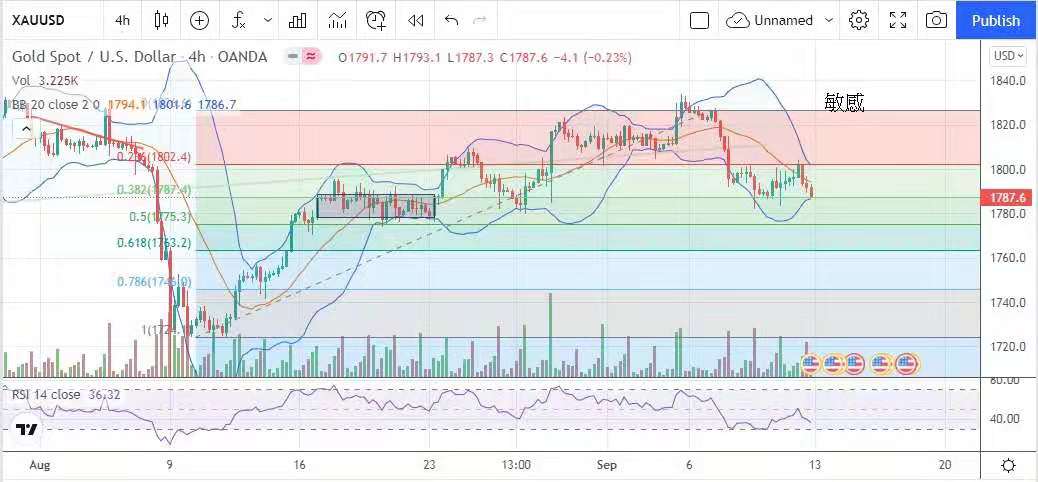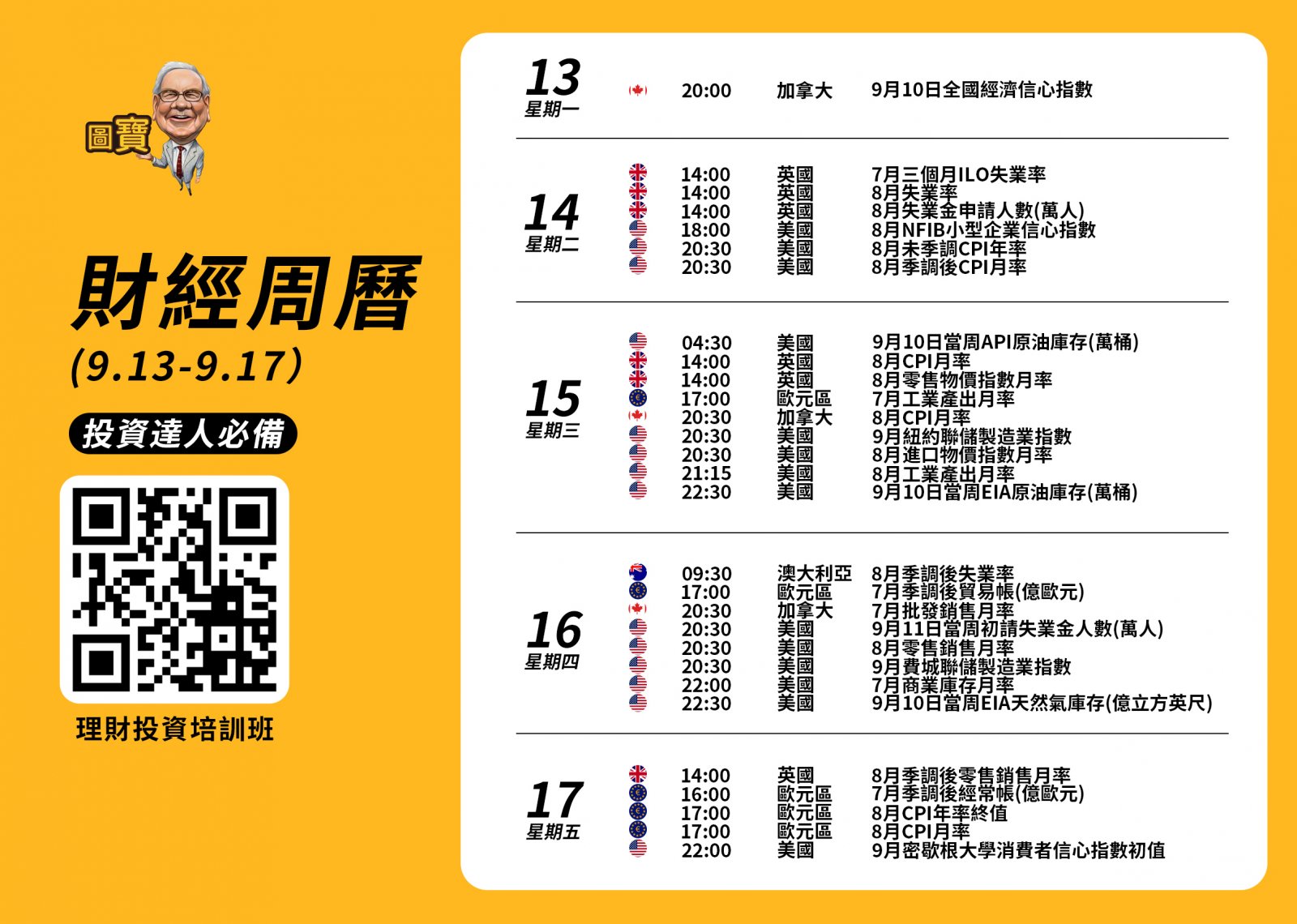Policy city
September 13th.
Today's volatility range:
The virus still threatens the pace of global economic recovery. However, under the pressure of inflation, the global central bank cannot keep loose monetary policy, and the inflation in the United States keeps rising, which has already exceeded the standard. However, the employment data shows uneven performance.
Although there has been some improvement in the near future, the Fed may need more time to observe. In the next interest rate meeting, it may not propose to reduce debt purchase, but the general direction will be this year. What remains is only the timing and magnitude.
Once the Fed starts to shrink its table, it will be detrimental to the gold market. Last week, when the price of gold touched below 1830, it dropped from the high level of this month and fell below 1800 US dollars. Now, it is in the callback state of a wave of rebound after the great adjustment on August 9.
And tested the resistance and support of gold ratio of 0.236 and 0.382. It is expected that the gold market will continue to decline today, with the target of USD 1,778 and the suggested volatility between USD 1,778 and USD 1,791.
Hong Kong stocks rose for three consecutive weeks. Yesterday, the mainland released the import and export data for August, both of which were better than market expectations, with year-on-year growth of 33.1% and 25.6% respectively, and the expanded trade surplus reached 58.34 billion US dollars in the same period. Import figures show that.
The recovery of China's domestic demand and the stabilization of the epidemic situation are conducive to the rise of consumption in the Mainland, and break the market's expectation that China will remain weak, thus benefiting Hong Kong stocks. However, the policy market is still a serious injury to China's stocks, and on Wednesday, the market reported that the Mainland was suspended.
Sensitive news caused Hong Kong stocks to drop sharply when new online games were approved. The Hang Seng Index dropped nearly 700 points at most, and once again fell below the 26,000 mark. However, the clarification on Thursday only suspended the approval. The Hang Seng Index rebounded and closed at 26,205 points, up 1.47% a week.
Britain announced plans to raise taxes and increase the national insurance tax and dividend tax. British Prime Minister Johnson said that this tax increase will bring revenue to the British Treasury and raise funds for medical and social security reform. Criticism of British business organizations.
Under the epidemic situation, tax increases will increase the operating cost of enterprises. The British stock market immediately fell from a three-month high, dropping 1.53% a week. Last week, the European Central Bank announced the results of interest rate decision, and the three key interest rates remained unchanged, among which the deposit interest rate remained negative 0.5%.
European Central Bank President Lagarde said that based on the joint assessment of the financing situation and inflation prospects, the central bank moderately slowed down the bond purchase speed of the emergency anti-epidemic bond purchase program, but she reiterated that slowing down the bond purchase does not mean reducing the bond purchase, but the risk market.
Treat it as bad news when liquidity decreases. German and French stock markets recorded losses in one week, with the DAX index in Germany and CAC index in Paris falling by 1.32% and 0.61% respectively. A week earlier, non-agricultural data continued to ferment, although the United States on Wednesday.
The number of people applying for unemployment benefits for the first time dropped to 310,000, the lowest level since the outbreak of the epidemic in the United States. However, investors are worried that the Federal Reserve will latch up early, and another Fed member Yang Ying, director Bowman, said that the United States is very close to the employment target.
If the data continues to meet expectations, it may start to tighten the current monetary politics this year. The three major stock markets on Wall Street fell across the board in one week, with Dow Jones falling for five consecutive days, down 2.24%, and S&P 500 index falling 1.63%. Nasdaq index.
From the historical high, it dropped by 1.29%.
On Tuesday, although the Reserve Bank of Australia kept the central bank's interest rate unchanged, it began to reduce its bond purchase scale. Investors made forward-looking reference and expected the Federal Reserve to reduce its bond purchase before the end of this year. The gold market fell repeatedly, and after falling below $1,808, the decline became more urgent.
It was down $29 that day. On Friday, the market lacked direction, and the bulls were still fighting for long and short positions in the early stage. The bulls tried to break through the $1,800 mark, and the highest price rose to $1,803. However, the US announced that the producer price index increased by 0.7%, which was better than the market expectation and triggered again.
Worried about the contraction of the Fed's table, the price of gold dropped sharply, closing at a low of 1787, down 7 dollars, and down 40 dollars a week.
For detailed analysis and operational suggestions, please CLICK the following link to join the group and check with the administrator.
https://t.me/mingtakchat
Previous Article Next Article


 Whatsapp
Whatsapp Telegram
Telegram

